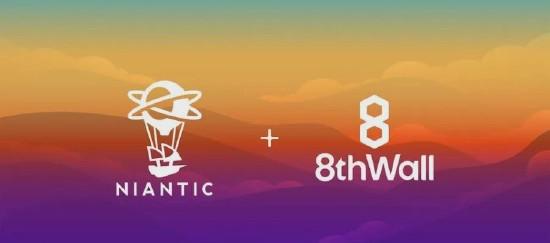Niantic, the developer of Pokémon GO and ar technology provider, announced on March 10 local time that it had acquired 8th Wall, a provider of web-based WebAR development platforms. For now, the two sides have not disclosed the exact amount of the transaction, but Niantic claims that the acquisition of 8th Wall is "our largest acquisition to date", and 8th Wall's 34-person team will join Niantic's team of more than 900 people.

Founded in 2019, 8th Wall provides an augmented reality development platform for creators across PC, mobile, and AR/VR devices. Brian McClendon, senior vice president of engineering, mapping and AR at Niantic, notes that 8th Wall pioneered web-based AR technology (also known as WebAR), which provides developers, businesses and organizations with a complete set of tools to create engaging, interactive AR experiences that are easily accessible and can run on mobile devices — without downloading apps.
With the Global Lightship platform launched last November, Niantic offers all developers what it calls "the world's largest immersive canvas, making their creations a reality at scale." 8th Wall marks Niantic's biggest acquisition to date, and according to the company, it greatly complements Lightship's vision. As a result, Niantic now plans to extend its Lightship developer platform tools with 8th Wall's proven WebAR technology.
After the acquisition, 8th Wall will continue to operate as an independent individual and will join Niantic's AR engineer organization. In addition, the acquisition is said to further expand Niantic's Lightship developer suite.
Commenting on the acquisition, Erik Murphy-Chutorian, CEO and founder of 8th Wall, said: "We are delighted to be part of the Niantic family as we join an incredible team dedicated to shaping the future of AR for the real world. Together, we will help developers create AR experiences that encourage people to connect with each other, discover new places, and explore the world around them. By continuing our partnership with Niantic, we will empower more developers, agencies, and brands to realize their vision of AR and the real-world metaverse." ”